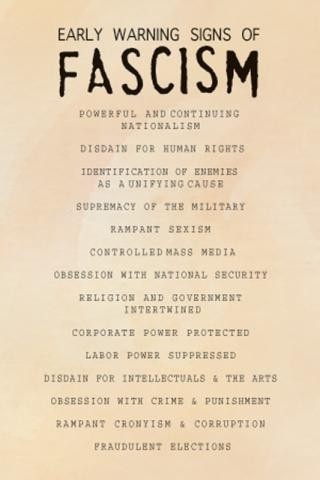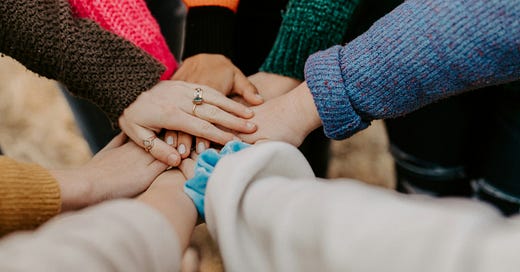Baking as an Act of Resistance
How the slow process of baking is in opposition of fascism and can be used to rest, heal, and prepare for the next battle.
In a typical month writing this newsletter, I would be baking my way through my Nana’s recipes, maybe talking about some food or agricultural history, and providing a little insight about my day-to-day life. But this hasn’t been a typical month.
Yes, I write a newsletter primarily based on my great-grandmother’s recipes and my focus is on those recipes, her life, how the world existed during the time she was alive, and everything related to that. I largely try to keep “unrelated” politics removed from this. But I’m also a queer writer, apart of a queer marriage, and my life, and especially my husband’s existence, has been made inherently political.
To deny that the weeks since January 20th, 2025 haven’t been filled with anxiety, grief, anger, and moments of fear, would be false and not a genuine portrayal to my audience. The amount of energy that we’ve had to devote to fighting for our human rights, again, prevents me from keeping my writing to a sweet post about baking my great-grandmother’s recipes while leaving all the political unrest surrounding my life in the shadows.
However, I would still argue that this is exactly the right place to discuss this. Food in itself is, unfortunately, political. People’s access to healthy foods is often based on their physical location, the built environment, and food apartheids, all impacted by politics. Financial access to food in impoverished communities fluctuates dependent on SNAP/WIC benefits provided (or not) by the government. Nutrition is promoted by the government via iterations of the food pyramid, MyPlate, and other templates that determine what they deem is healthy under that administration. Not to mention the entire existence of the U.S. Department of Agriculture and their oversight of the food system, the price of eggs, lobbyists that ensure that their junk food is cheaper than fresh produce in grocery stores, and so much more. Neglecting these facts would be like ignoring the ecosystem that this newsletter genre exists within.
I want to be clear that I’m not planning on turning this newsletter into a purely food/politics situation, but I want to recognize that these worlds are not separate and that one often informs the other. I would love to just be baking my Nana’s recipes every two weeks, sharing the outcome, and living my life more normally, but the current political state of the U.S. and the threat to my rights and existence requires that I spend my time fervently emailing my representatives about the avalanche of anti-LGBTQIA+ legislation and executive orders continuing to be issued, spending way more time than I’d like reading news articles to stay informed, and lifting others, and myself, up from the pits of despair to carry on and fight.
Early Warning Signs of Fascism
My Nana was born in 1908. That would have made her 31 at the start of World War II. It’s mind boggling to think that my Nana watched the rise of fascism in Germany and Europe at almost the same age that I’m watching the early warning signs of fascism in the United States. I’d like to think that my Nana would be as fearful, ashamed, and disgusted as I am to see how our government is veering steadily towards a fascist-oligarchy political structure and what that means for the American people.
At one point, the United States Holocaust Memorial Museum had a poster sold in it’s gift shop that describes the twelve early warning signs of fascism. This was circulated wildly in 2017 after Trump’s first presidency, but I honestly think it carries more weight today.

Fascist leaders want us to immediately comply and live in a state of fear. This is why Trump was so pleased when some children’s hospitals began immediately complying with his executive order banning transgender youth care (as well as for 18-year-old adults that were classified in the EO as children) that he followed up with a memo highlighting and praising their [cowardly] efforts. Executive orders are directives to the federal government for how operations should be managed and do not have the same legal standing as laws passed by Congress. However, out of the fear of funding losses, so many institutions have begun complying in advance. Thankfully, many of these have been blocked by the courts through temporary restraining orders (TROs) but the fear they’re attempting to instill is palpable. Their tactic is to overwhelm, foster a sense of fear, and push for immediate compliance without questioning the legality of each action.
Baking As [A Form Of] Resistance
Baking in and of itself is a slow process and relies on slow, methodical thinking, following sequential steps to achieve an end result. Baking is in sharp opposition of the mental state fascism tries to create. Participating in practices that require us to slow down, think, and console our nervous systems are not only healing, restful and necessary during these times but also act as a form of resistance against those that are trying to instill fear in us. Similar to fiber art crafts like embroidery and sewing, it’s already in opposition of the entire pace of modern culture and creates a sense of accomplishment, joy, and self-reliance that threaten fascist regimes.
I’m a strong proponent that baking can facilitate community building. You all know that I’m a huge fan of baking sourdough. My average is one sourdough loaf, or some type of sourdough bake, a week, but a couple of weeks ago I decided to make 1.5x my usual sourdough bread recipe, and mix in some caramelized onions that I simmered on the stove for an eternity. I split it into two medium size loafs and the last section into a couple mini loaves. I wrapped up the mini loaves in parchment and took them over to my next door neighbor (who we officially met while trying to shoo a javalina from our apartment complex). She was so excited to be gifted bread and graciously took two mini loaves. A couple days later she waved to me from our front window and yelled “the bread was SO good”. It felt amazing to take something that I so lovingly make, and a process that stretches across two days, and share it with someone directly in my community.
Community building is such an important part of rest, resilience, and resistance and sharing baked goods has been my new way of fostering this. It’s a relatively small thing in the grand scheme of things, but it makes me feel proud that I’m spreading joy, fostering a sense of community, and demonstrating genuine human kindness.
However, this practice is not new. From election cakes in the Revolutionary War to secret kitchens in the civil rights movement to a bake sale that raised $1.3 million for Black Lives Matter, baking has been used across generations to create community and fund activism. Especially for women, people of color, and the LGBTQIA+ community who’s rights have been repeatedly targeted, using traditionally domestic skills like baking and fiber arts to speak up, feed the revolution, and promote community can be incredibly empowering.
Go Beyond “_____ As An Act of Resistance”
I’ve seen many posts across social media about “joy as an act of resistance,” which is honestly a pretty empty act if that joy, rest, [insert whatever other term here] isn’t used as a catalyst to resist in concrete ways that enact change in our democratic republic.
Call your representatives. Email your representatives. Daily.
Be relentless in your resistance of an administration that is banking on a lack of pushback.
Our representatives work for us and they should act like it. Baking, acts of joy, slow living, community building and everything else that’s opposite of the chaos that this year has ensued is incredibly necessary, but it’s just a piece of the Resistance Pie. Make sure you bake the whole pie, and not just a slice.
Resistance Resources
Resist.Bot: I am not a fan of AI in most aspects of life, but to help me manage the mental burden of contacting my representatives (sometimes multiple times a day)? Yes, please. Since inauguration, I’ve been using Resist.Bot to facilitate emailing my representatives. Their system allows you to write your message and contact multiple representatives at the same time without needing to compile email addresses and find your reps. They even have an AI function that will use an article and your stance to write about an issue for you.
5 Calls: While I haven’t used this yet, 5 Calls has been recommended as a wonderful tool to find and call your representatives. They have short scripts for [some of the] current political issues to make calling less flustering.
Find or Create Mutual Aid Networks: Mutual Aid Networks are an organizational model where voluntary, collaborative exchanges of resources and services for common benefit take place amongst community members to surpass social, economic, and political barriers, helping everyone meet common needs. This might include sharing food, clothing, medicine, but encompass so much more. If you’ve ever seen or used a neighborhood No Buy group on Facebook or NextDoor, this is a type of mutual aid network. Here’s a website that has some mutual aid hubs, but it definitely doesn’t incapsulate all of them. If there’s a mutual aid area lacking in your area, here are some tips for creating one.



